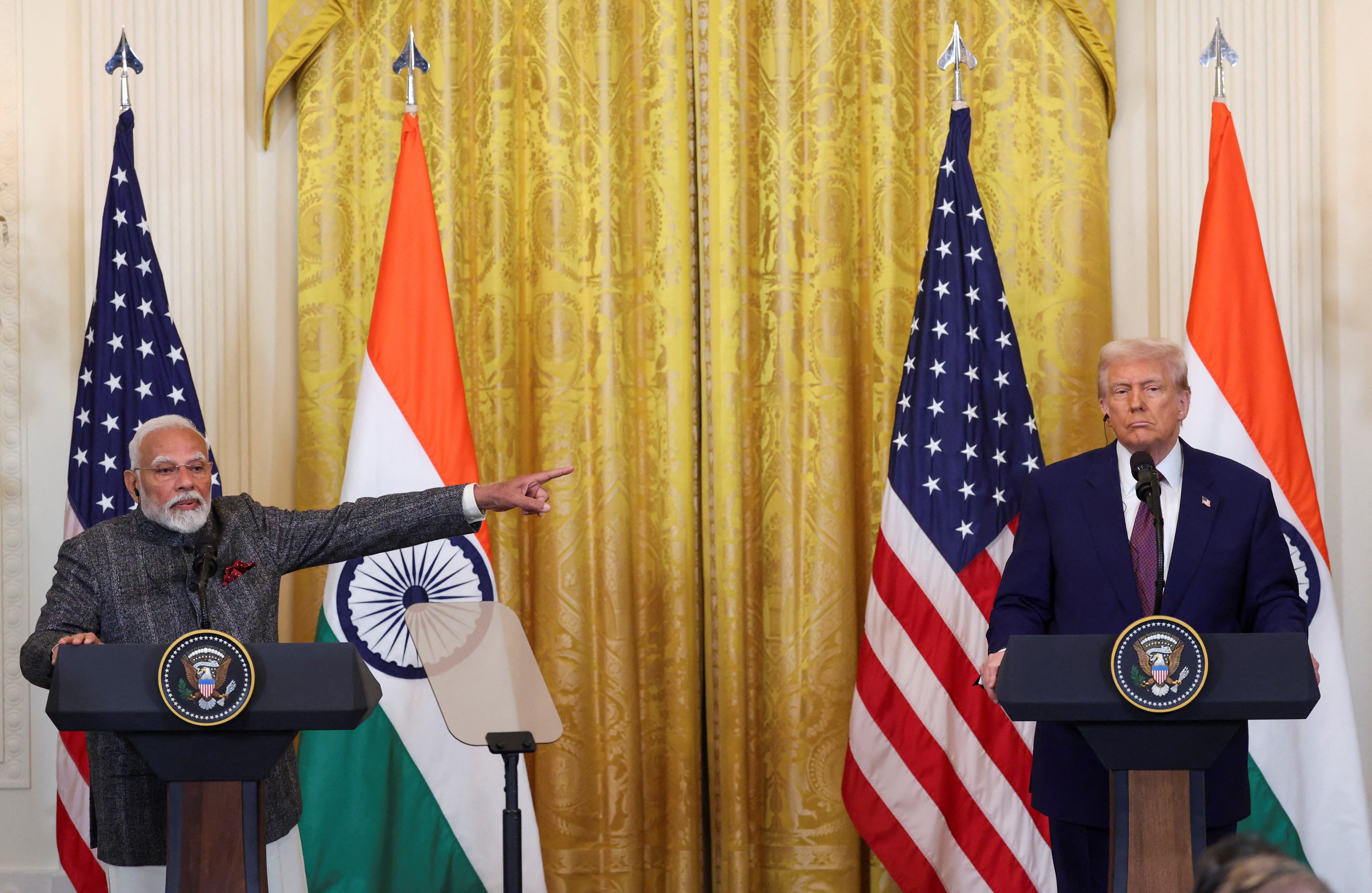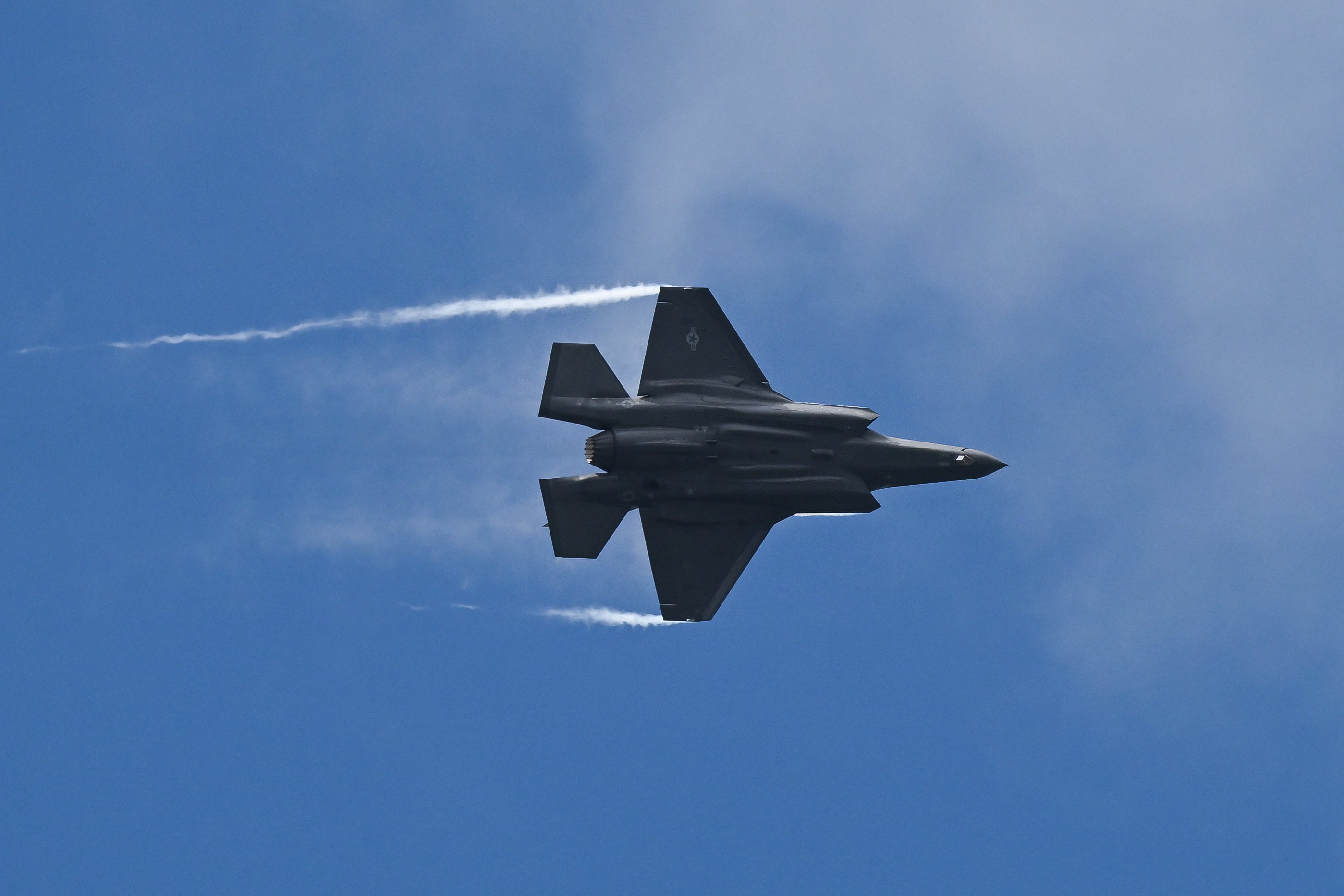China and Pakistan have criticised Donald Trump's proposal of selling F-35 stealth fighters to neighbour India during the American president’s meeting with Indian prime minister Narendra Modi in Washington DC last week.
Mr Trump's push to India to increase its military spending by billions of dollars through the purchase of the elite fifth-generation fighter aircraft has created a stir in the Asian subcontinent with Pakistan and China warning against disruption in the region.
India, the biggest military importer, is reportedly seeking bids this year for 114 multi-role fighters in a major step to bolster the country's fleet of combat aircraft in an apparent effort to counter China's growing air capabilities.

“Starting this year, we’ll be increasing military sales to India by many billions of dollars,” Mr Trump told a joint news conference with Mr Modi. “We’re also paving the way to ultimately provide India with the F-35 stealth fighters,” he said.
India's foreign secretary Vikram Misri later clarified that the F-35 deal, which the US only sells to Nato states and allies, was a proposal with no formal process underway.
However, the proposal was enough to irk Pakistan, which has multiple F-16 fighter jets in its arsenal. Pakistan's foreign minister said the nation was "deeply concerned over the planned transfer of such advanced military technology to India".
The ministry claimed the transfer would "accentuate military imbalances in the region and undermine strategic stability".
"We urge our international partners to take a holistic and objective view of issues of peace and security in South Asia and refrain from endorsing positions that are one-sided and deviate from ground reality."

China's foreign ministry spokesperson Guo Jiakun said the Asia-Pacific region was not a "chessboard for geopolitical maneuvering". "Forming exclusive circles and engaging in group politics will not bring security and will only harm regional and global peace and stability.”
Lockheed Martin, the makers of the F-35, said "we are encouraged by the recent announcement by president Trump to provide the F-35 to India". The US foreign military sales are considered government-to-government deals where the Pentagon acts as an intermediary between the buying government and the defence contractor.
"We look forward to working closely with both governments on upcoming strategic procurements," a Lockheed Martin spokesperson said.
While the F-35 fighter jets would be a major win for New Delhi, it would also be mutually beneficial for Washington, which sees India as a foil to China's rising power in the East.
India and China share a 3,488km border that runs from Ladakh in the west to Arunachal Pradesh in the east. Relations between the hostile neighbours hit a new low in July 2020 after at least 20 Indian army personnel and four Chinese soldiers were killed in a deadly clash in the Galwan Valley in Ladakh in one of the most major conflicts in 45 years.
China in December last year appeared to have tested novel sixth-generation stealth military tailless aircraft after they were seen flying over Chengdu city.
"The Chinese are inducting modern fighters and Pakistanis are also getting some Chinese support whereas the Indian Air Force, in terms of combat squadrons, is deficient. There is no doubt about it," said Laxman Behera, a defence expert at government-funded Jawaharlal Nehru University in New Delhi.
"We'll have to wait and watch," he told Reuters.
The Indian Air Force does not have US fighter jets in its active fleet, but about 50 aircraft are powered by General Electric engines, with 170 more on order. Mr Modi and Mr Trump In a joint statement at the White House announced plans to sign a new 10-year framework later this year for the US-India Major Defence Partnership.
Rahul Bedi, an independent defence analyst based in India, said the deal with the US for F-35 stealth fighter jets will not fill India’s immediate need for more than 100 aircraft. "They are not going to come tomorrow. It’s going to take several years to start arriving,” he told the Associated Press.







